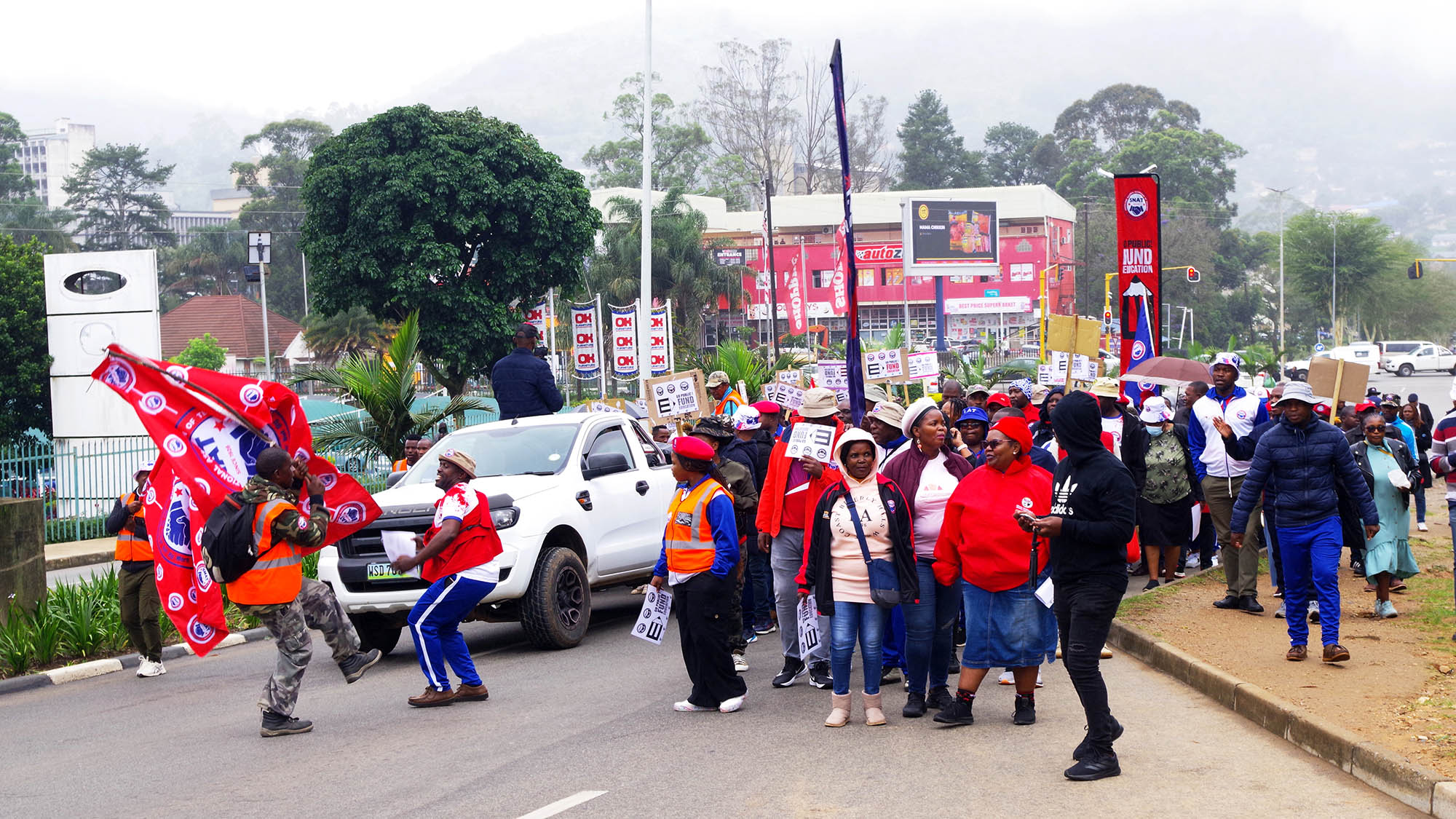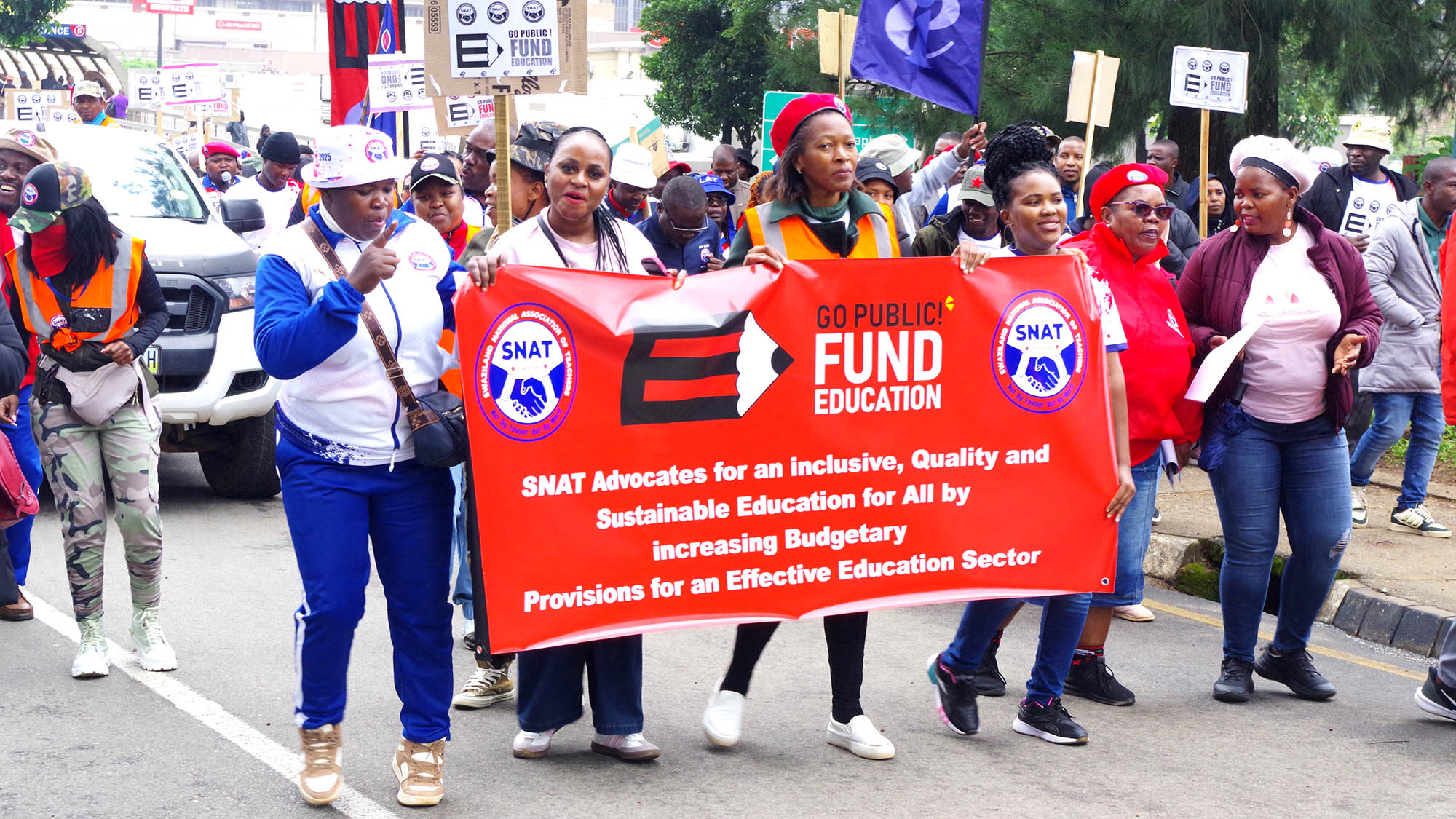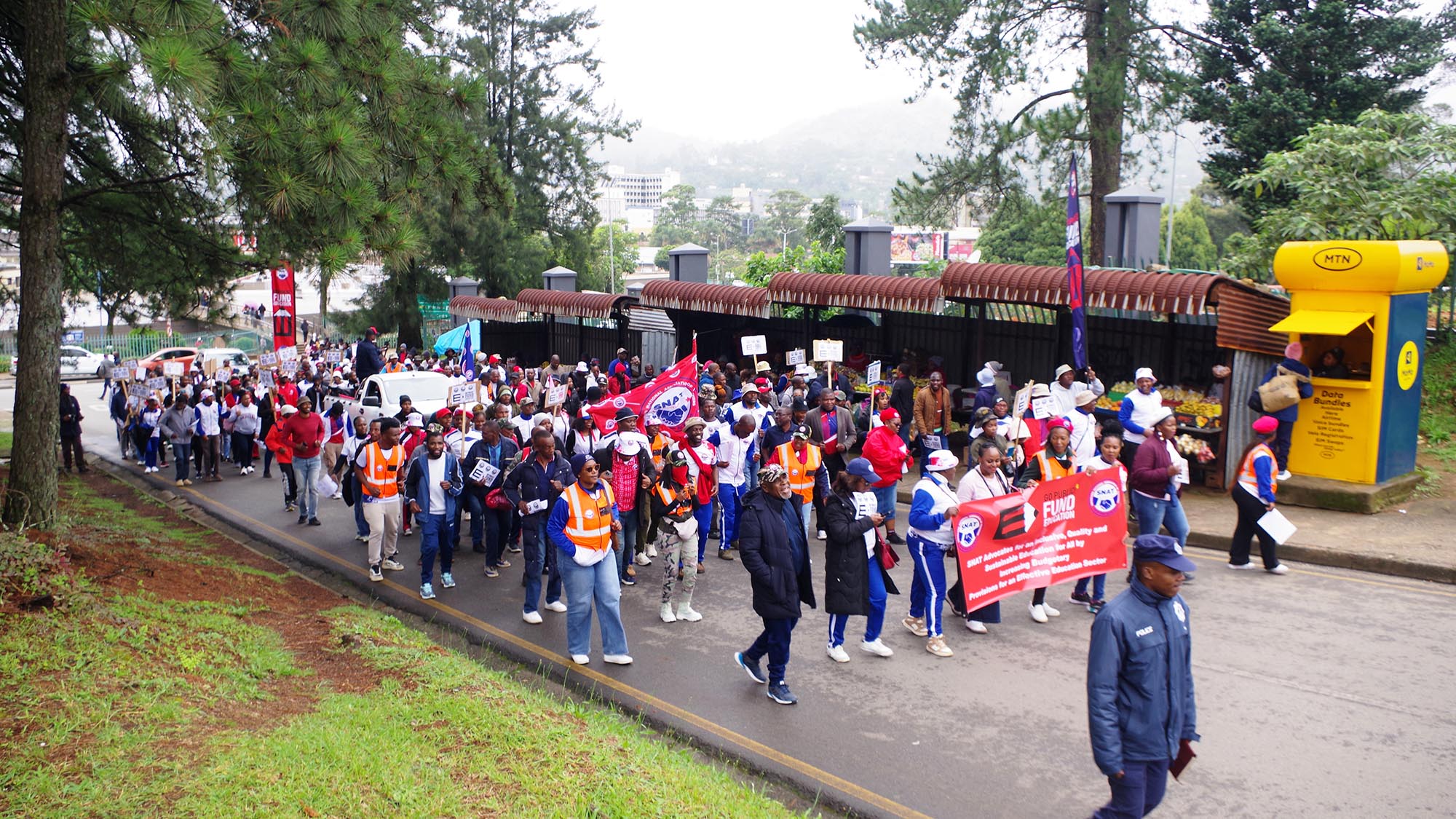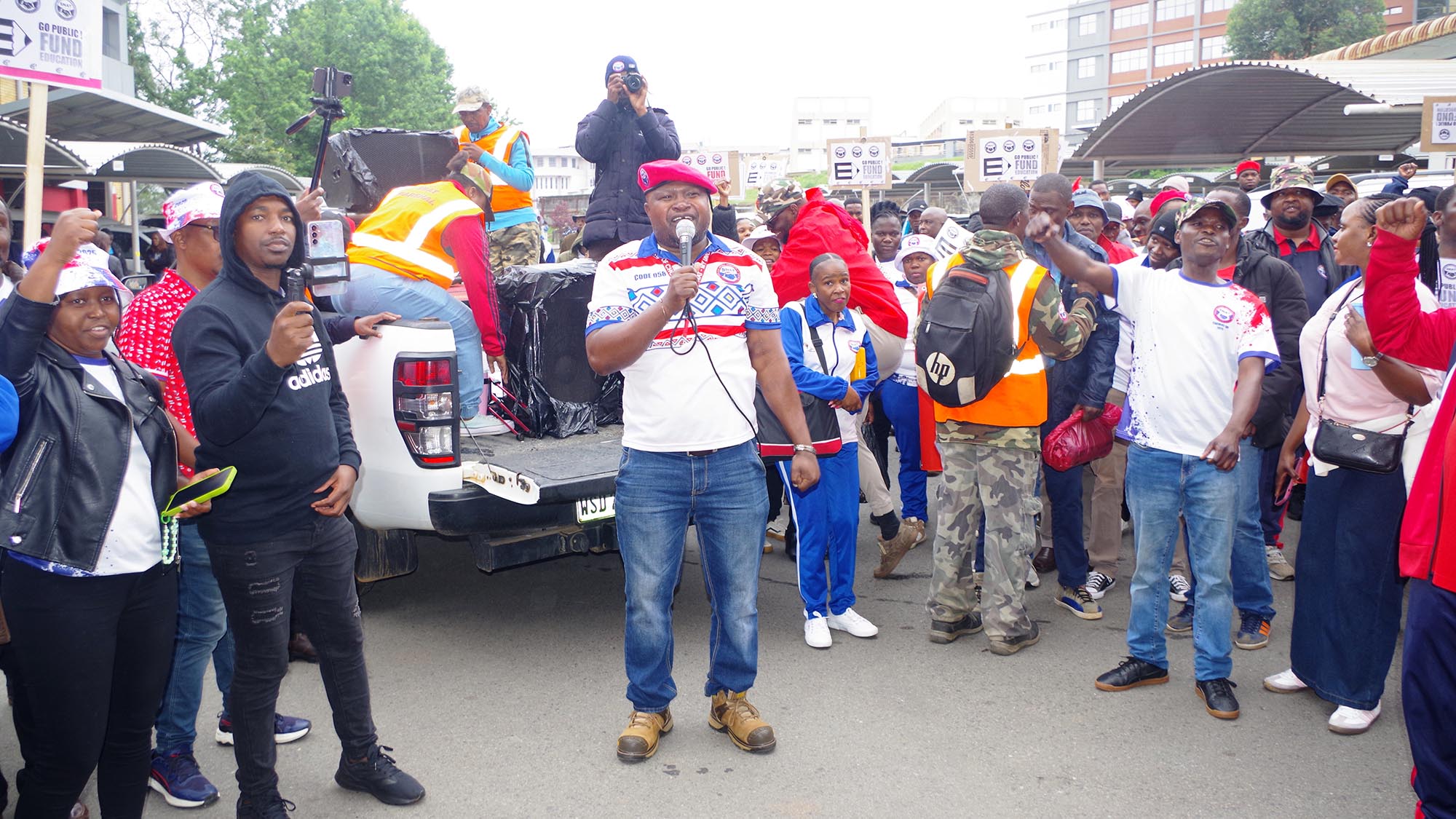
MBABANE – The Swaziland National Association of Teachers (SNAT) has intensified its national campaign calling on government to ‘Go Public, Fund Education’, arguing that years of stagnant funding have pushed the country’s public schooling system into crisis.
Yesterday, teachers held a campaign characterised by a march. They gathered at a busy junction on the Mbabane–Manzini Highway, in the presence of police officers stationed at various points in the town centre.
Teachers from all four regions — Hhohho, Manzini, Shiselweni and Lubombo — assembled to voice frustration over what they describe as chronic underfunding, poor infrastructure and declining learning standards.
The teachers’ body initially gathered to set out its demands before heading to the Ministry of Education and Training to deliver a memorandum of understanding (MoU). The MoU was presented as a formal statement of the sector’s collective grievances and expectations.
Speakers from regional branches painted a grim picture of conditions in their schools. In Lubombo, SNAT members said government had failed to keep pace with rising costs, insisting that increased investment was long overdue. Representative Sifiso Mabuza said the sector had been left behind for far too long, calling for “meaningful financial commitment towards public education.”
In Manzini, Ntuthuko Mamba criticised government for expecting teachers to carry out responsibilities that were not matched with adequate funding. He noted that educators were being asked to deliver elements of the new curriculum, including Cultural Arts, without the resources required to teach them properly. “We cannot teach children to dance if there is no funding for proper education,” he said.
From the Shiselweni Region came concerns about widening inequalities across schools. Representatives warned that poor funding risked forcing children out of school as institutions struggled to cover basic operational costs. They also stressed the need for teachers to be compensated fairly, saying current conditions were unsustainable.
The Hhohho Region echoed these concerns, calling the situation a national and international issue. Speakers argued that the country was lagging behind global education standards, with stagnating funding failing to match escalating costs of commodities and school supplies.
The Swaziland Association of School Administrators (SASA) added its voice, emphasising that many schools were unable to pay support staff or maintain facilities. Recording Secretary Terence Nxumalo said it was unacceptable that some schools functioned like businesses, charging fees for services such as water because of insufficient government allocations. He also noted disparities in Grade programmes, saying some schools were at a disadvantage and urged government to standardise support.
Parents also joined the call for reform. Cedric Chirwa, President of the Eswatini Schools Committee and Parents Association (ESCAPA), said quality education is a constitutional right.
He criticised government for failing to ensure equal access, noting that children of senior officials often attend well‑resourced private schools while public institutions struggle.



